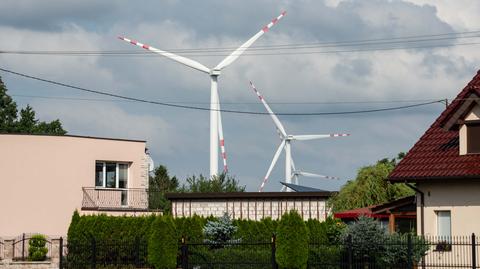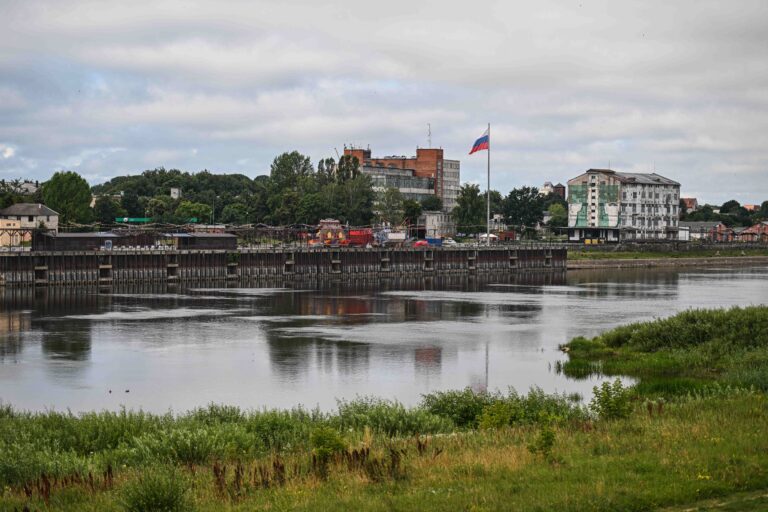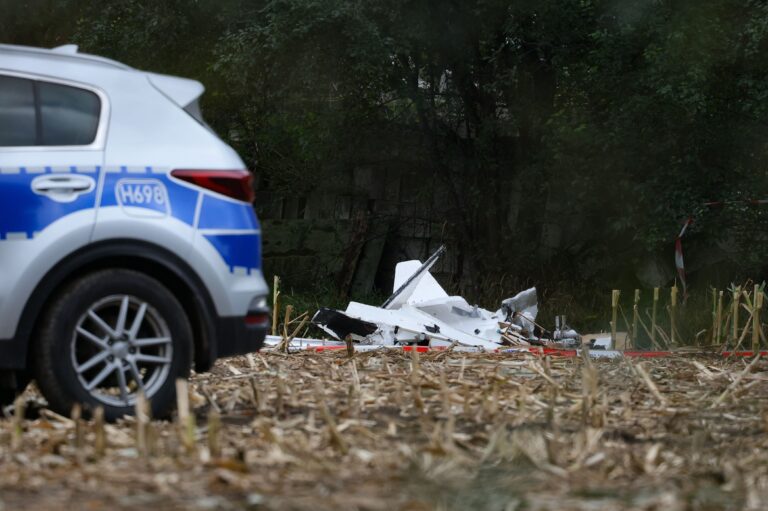Biznes Fakty
Karol Nawrocki's veto of the wind farm bill. Joanna Maćkowiak-Pandera comments.

„This is not a discussion grounded in pragmatism or practicality; rather, it is a typical political narrative,” stated Joanna Maćkowiak-Pandera, president of the Energy Forum, during an appearance on TVN24, commenting on President Karol Nawrocki’s veto of the so-called wind farm legislation.
On Thursday, Karol Nawrocki vetoed the wind farm legislation and revealed that he had signed a legislative draft aimed at freezing electricity prices, which was „literally extracted” from the vetoed law.
„I find it challenging to identify any other observation or assessment of this situation. It is merely a political confrontation, as there are no valid arguments involved. No one is asserting that this solution is either good or bad; they simply express a general discontent towards this mechanism and favor alternatives. This is not a pragmatic or technical discourse but rather a political narrative devoid of relevance to the current realities we face,” Joanna Maćkowiak-Pandera remarked on the „Wstajesz i weekend” program on TVN24.
Windmill Act. Maćkowiak-Pandera: The Discussion Has Turned Political
„Fifteen years ago, coal comprised nearly 90 percent of Poland’s energy mix, but it is now rapidly decreasing, with coal currently accounting for 55 percent. We need to bridge the energy gap with alternative sources, and wind turbines are certainly one of those options,” she stressed.
„It is rather concerning that this discussion has devolved into a political debate. I was also unhappy that the government associated wind farms with the freezing of energy prices, as that was likely intended to provoke and confront. Nevertheless, I hope there will be some reflection, and that the major political factions will begin addressing the real issues of energy security in Poland, which are only intensifying,” she expressed.
The expert observed that politicians are „tilting at windmills like Don Quixote.” „They selectively choose which sources they favor and which they do not. This is genuinely perilous,” she highlighted.
 Windmills in Darłowo. Photo from August 25, 2022. PhotoRK/Shutterstock
Windmills in Darłowo. Photo from August 25, 2022. PhotoRK/ShutterstockExpert: Windmills are the cheapest source of energy
The expert pointed out that wind farms currently represent the most affordable source of energy. „The present cheapest source is indeed wind farms, with the unit cost of generating one kilowatt-hour exceeding 200 zlotys. In comparison, energy from a nuclear plant costs significantly more than 500 zlotys, and solar energy exceeds 300 zlotys. Coal prices are above 400 zlotys and fluctuate greatly,” she remarked.
„Wind, sun, and water incur no costs. These resources are ours; we do not need to import them. While Poland lacks sufficient water for large hydroelectric plants, we have an abundance of wind and sunlight. Of course, the wind does not blow continuously, nor does the sun shine all the time. This presents a challenge for the system,” she asserted.
„Thus, the future energy system must be adaptable and secure, ensuring that during times of renewable energy shortages, alternative sources—gas, coal, and perhaps even nuclear—can be engaged. This future energy framework must be designed to maintain a safe balance, allowing conventional sources—gas and coal—to be activated when there is no wind or sunlight. This is the envisioned structure of the future energy system,” the expert clarified.
Maćkowiak-Pandera: it's expensive in Poland because we have old coal-fired power units
She also addressed fears regarding the closure of coal-fired power plants. „Some individuals are alarmed that we will close coal-fired units and that the lights will go out. This is an extreme scenario for those watching movies,” she stated.
„Before that occurs, it is simply going to be costly. And please recognize that it is already costly – it is expensive in Poland, it is expensive in Germany, and it is expensive in France. Each country faces high prices for different reasons,” she pointed out. She added that the elevated costs in Poland stem from aging coal-fired power plants, which incur additional expenses.
„Poland is costly specifically because we operate old coal-fired units. They tend to malfunction, and concurrently, there is very little power available,” she explained.
She emphasized that this issue did not arise suddenly; it has been developing over many years. She also criticized the response of successive governments regarding energy matters. „It genuinely astonishes me that the Law and Justice government, which has held power for many years, was unable to elevate this topic to a level of substantial discussion, treating energy as a means for political
Źródło



